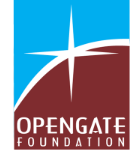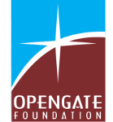Child’s family
Parental representation
We understand that children grow in the context of their families. This is a team of decision makers for the project. The committee has various members, including project workers, members and staff of the church and parents.
In this way, some parents represent other parents in the decision-making processes of the project.
A very old grandmother like the one on the right faces a lot of challenges on her own. It is unbelievable that she has to fend for the young girl that was left behind with her. It is at this point that we believe that not unless we intervene, girls like this have no future, no hope and prone to manipulation.
Parental care
We also give weight to caring for parental needs —the parents’ well-being directly relates to the welfare of their children. It’s often possible for us to include parents in training activities and arrange for special classes in:
- Parenting skills
• Literacy
• Child care
• Income generation or other useful skills
More on Child sponsorship
OGF recognizes the unique relationship between the sponsor and children. Therefore the Foundation continues to encourage child sponsorship within the context of poverty, and social and physical conditions.
Special attention is given to children who; are orphan, are abandoned, are exploited, live with a window parent or other relative, are physically or mentally handicapped, have parent who are handicapped, are from destitute or refugee families or parent of a single parents. For more information contacts us.
A guardian with a granddaughter who was left behind by her daughter .Some of the challenges that our communities are facing is the children who are left behind with their grandmothers and the real parents do not provide any support to the grandmothers. It is our hope that we will get partners who will come in aid of these vulnerable children
Orphan girls even in primary school in Kenya are at risk of being victimized by sexual violence, or being trapped in sexual exploitation to pay their school expenses, situations that carry a high risk of contracting AIDS.
Poor girls may receive little or no education and are not taught the skills to earn an income. They do not learn about sanitation, nutrition and health care, which would prevent 90% of the illness in their families when they become mothers.
Thirty five million girls in the developing world are not in school. These girls, and others with little education, start raising families soon after puberty, beginning still another generation of poverty-stricken families. In many developing countries poverty has been reduced to levels below those in America, while other countries are achieving rapid rates of economic growth that leave the lives of their poor unchanged. The difference has come from providing, or not providing, an equal education to girls.
Educated mothers have fewer, healthier and better educated children, which begins to move their family out of poverty. When the children of educated mothers begin their families they also have fewer, healthier and better educated children.
Each generation moves further out of poverty, reducing infant and maternal mortality and increasing life expectancy for the entire family. The benefits of educating a girl continue generation after generation, beyond her lifetime.

